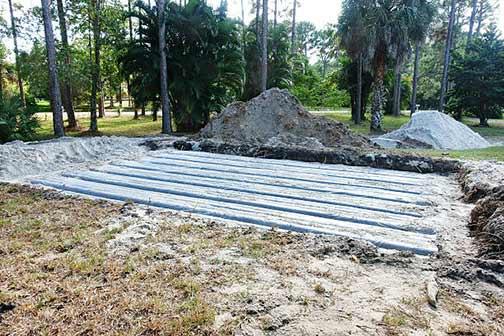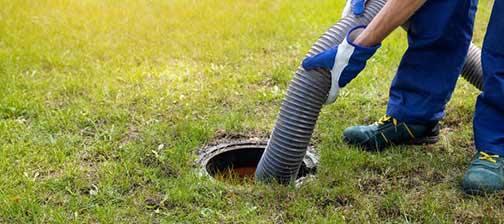Understanding Why It’s Important to Service Septic Systems in Summer
As the hot summer weather sets in, most homeowners will spend more time outdoors, entertain more, and enjoy summer activities. However, summer brings with it the heavier usage of water, leading to a higher load on septic systems. This is why it’s critical to understand why regular maintenance is necessary. Proper septic system care not only prevents costly repairs but also ensures an efficient and healthy waste process. By learning why summer care is important, homeowners can take early measures to get the most from their septic systems.
Top Dos to Optimize Your Septic System
To ensure your septic system operates optimally through the summer, there are several key practices to follow. These ‘Dos’ will optimize the performance and longevity of your system, minimizing the risk of failure and environmental damage.
Do Schedule Regular Inspections
Regular maintenance is key in identifying any issues before they become major problems. A professional inspection can uncover leaks, obstructions, or wear and tear that will impact the performance of the system. Getting inspections completed at the beginning of summer allows homeowners to address any issues immediately in order to have peak performance throughout the season.
Do Practice Water Conservation
During summer, water usage generally increases due to gardening, car washing, and filling swimming pools. Water conservation practices can actually reduce the strain to your septic system. Simple habits like fixing leaks, using water-conserving appliances, and not using too much water can make a big difference in keeping systems in balance and avoiding septic stench inside your home.
Do Use Septic-Safe Products
Choosing septic-safe cleaning and personal care products makes sure that harmful chemicals are not introduced into the system. The ingredients in most household products will disrupt the bacterial balance that is required to degrade the waste. Utilize biodegradable and earth-friendly products to protect your septic system and the surrounding environment.
Do Educate Household Members
Ensuring that all members of the household understand how to properly use the septic system is the first line of defense against accidental damage. Educate household members on what not to flush down toilets or pour down sinks. Some of the items that should never find their way into the septic system include paper towels, feminine hygiene products, and grease.

Essential Don’ts to Avoid Septic System Issues
While following best practices is important, it is equally crucial to avoid certain actions that can lead to septic system failures. These ‘Don’ts’ serve as a guide to prevent common mistakes and ensure the system remains efficient and reliable.
Don’t Overload the System
Excessive water usage can overwhelm the septic system and lead to backup and inefficiency. Avoid doing multiple loads of laundry in one day and space out activities that require heavy water usage. Homeowners can prevent system overload and maintain proper operation by managing water flow.
Don’t Use Harsh Chemicals
Steer clear of strong chemicals found in cleaning supplies, pesticides, and drain cleaners since they can damage the septic system’s delicate bacterial balance. These chemicals kill helpful bacteria that assist in waste breakdown, making the system inefficient and clog. Utilize natural or septic-safe products to help ensure the system’s integrity.
Don’t Ignore Warning Signs
Ignoring warning signs such as slow drains, unpleasant odors, or wet spots in the lawn can result in major septic system issues. Such signs typically indicate underlying problems that should be fixed immediately. Promptly addressing warning signs can prevent costly repairs and ensure continued efficient operation of the system.
Don’t Plant Trees or Shrubs Near the System
Roots from trees and shrubs may invade and ruin septic system components, causing clogging and leaks. Avoid planting trees and shrubs with invasive root systems near the septic tank and drain field. Maintaining a safe distance between plants and the system is key to preventing root damage.

Additional Tips for Septic System Optimization
Beyond the overall dos and don’ts, homeowners can implement a few additional strategies to get their septic systems summer-ready.
Consider Professional Septic Pumping Services
Regular pumping is one of the most critical septic system maintenance tips. Consider hiring professional services for septic tank pumping every three to five years, depending on usage and household size. Pumping removes the solids accumulation and overflows, enabling the system to operate efficiently.
Monitor Water Usage Patterns
Observing water use patterns can identify where there is room for improvement. Measuring usage allows homeowners to change habits and implement water conservation practices effectively. Homeowners can make decisions to optimize system performance by being able to identify consumption patterns.
Maintain Drain Field Health
The drain field is a critical component of the septic system that disperses and filters wastewater. Maintain the health of the drain field by averting heavy traffic, water saturation, and soil compaction. A healthy drain field ensures overall system efficiency.
Expanding the Reach of Septic System Maintenance Education
While homeowners can institute practices to optimize the function of their septic systems, education at a community level can further enhance the effect of such practices. County governments, homeowners’ associations, and environmental groups can play a leading role in disseminating information pertaining to septic system care. Workshops, educational brochures, and websites can provide homeowners with information to maintain their systems.
Exploring Technological Innovations in the Operation of Septic Systems
Technology continues to alter the landscape of septic system maintenance. Emerging solutions such as smart septic system monitors have the ability to provide homeowners with real-time data on system function, alerting them to issues before they become critical. Embracing technology can lead to more efficient maintenance schedules and a greater understanding of system health.
Understanding the Environmental Impact of Septic Systems
Septic systems are a critical component of environmental health, and their operation is necessary to prevent pollution and preserve natural resources. By optimizing septic system operation, homeowners contribute to the reduction of groundwater pollution and the protection of local ecosystems. Understanding the larger environmental role of septic system maintenance underscores the necessity of it.
Sustainable Septic System Practices through Collaborative Efforts
Sustainable septic system practice is possible with the collaboration of various stakeholders. Homeowners, policymakers, environmental scientists, and industry practitioners can come together to formulate guidelines and standards that promote healthy septic system usage. Collaboration can yield innovative solutions that address individual needs and environmental sustainability.
Future Directions in Septic System Optimization
To the future, the septic system optimization business will continue to experience steady growth and innovation. Emerging technologies, increasing awareness, and evolving regulations will shape the future of septic system care. By staying informed and current with emerging trends, homeowners can continue to operate their systems smoothly and in an environmentally sound way.
Conclusion: Proactive Septic System Care for a Trouble-Free Summer
Summerizing your septic system is a question of adding good proactive measures to the avoidance of some extremely common errors. By observing the big do’s and don’ts, homeowners can keep their systems flowing free, save money on costly repairs, and do their bit for environmental sustainability. Good maintenance, water conservation, and responsible use are the three principles of an error-free summer, allowing homeowners to sit back and enjoy the season without septic system concerns.


